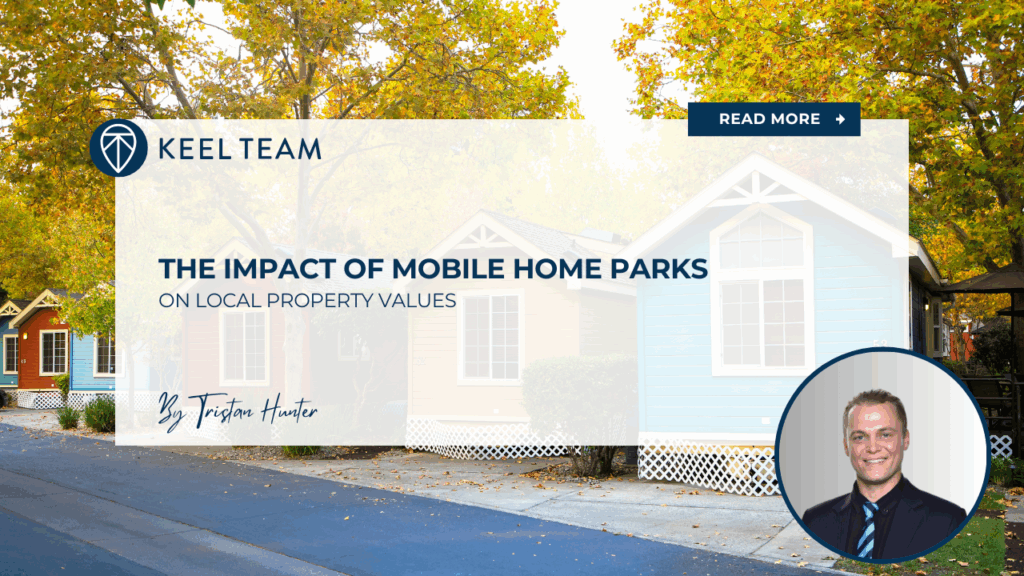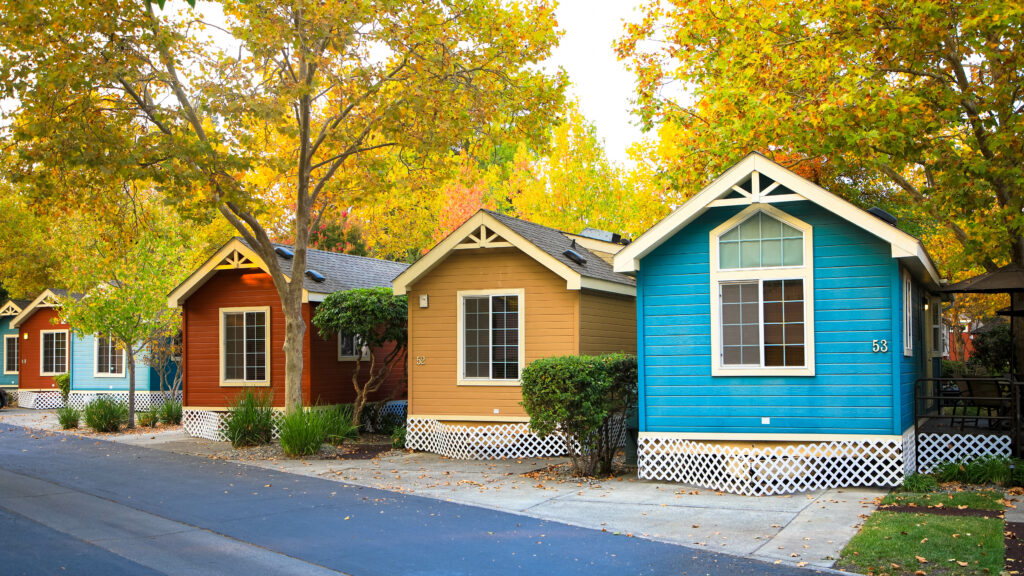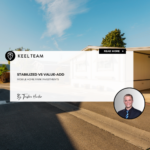The Impact of Mobile Home Parks on Local Property Values
-
 Tristan Hunter - Investor Relations
Tristan Hunter - Investor Relations

Mobile home parks spark curiosity among homeowners, investors, and community planners, especially regarding their influence on nearby property values. As affordable housing options gain traction, understanding how these communities affect surrounding real estate becomes essential. This article explores the potential impact of mobile home parks on local property values, highlighting both positive and negative factors. With clear insights and a straightforward approach, we aim to provide a balanced perspective for anyone navigating this complex topic.
Why Mobile Home Parks Matter in Real Estate
Mobile home parks offer cost-effective housing, typically attracting residents who prioritize affordability. Their presence in a neighborhood may shape perceptions, economic activity, and development patterns, all of which may influence property values. However, the effect varies based on location, management, and community dynamics. Let’s dive into the key ways mobile home parks may impact nearby real estate.
Download our FREE eBook on the Top 20 things to know BEFORE investing in mobile home parks!
Potential Positive Impacts on Property Values
Mobile home parks may contribute positively to local property values under certain conditions. Here’s how they might boost the appeal of surrounding areas.
1. Meeting Demand for Affordable Housing
As housing costs soar, mobile home parks provide an affordable alternative, drawing residents to the area. This influx may increase demand for nearby services, such as grocery stores or restaurants, fostering economic growth. A vibrant local economy may, in turn, make the neighborhood more attractive to homebuyers, potentially stabilizing or raising property values. For example, a well-maintained mobile home park may signal a community’s commitment to inclusive housing, appealing to diverse buyers.
2. Encouraging Infrastructure Development
Mobile home parks often require upgrades to roads, utilities, or public services, which may benefit the broader community. Improved infrastructure, like better street lighting or expanded public transit, may enhance the desirability of nearby homes. When local governments invest in these improvements, surrounding properties may see a value uptick due to enhanced accessibility and convenience.
3. Stabilizing Neighborhood Populations
By offering affordable housing, mobile home parks may attract long-term residents, reducing turnover in the area. Stable neighborhoods with consistent occupancy may appeal to homebuyers seeking community cohesion. In some cases, this stability may prevent property value declines that occur in areas with high vacancies or transient populations.
4. Attracting Mixed-Income Communities
Well-managed mobile home parks may foster mixed-income neighborhoods, blending affordable and higher-end housing. This diversity may appeal to buyers who value inclusive communities, potentially boosting demand for nearby homes. A balanced demographic may also reduce the risk of economic stagnation, supporting steady property value growth.
Potential Negative Impacts on Property Values
While mobile home parks may bring benefits, they may also pose challenges to local property values. Understanding these risks helps stakeholders make informed decisions.
1. Negative Perceptions and Stigma
Some people associate mobile home parks with lower-income living or outdated infrastructure, which may deter potential homebuyers. This stigma, even if unwarranted, may lower demand for nearby properties, potentially depressing values. For instance, poorly maintained mobile home parks with visible neglect may reinforce negative stereotypes, impacting perceptions of the entire neighborhood.
2. Increased Traffic and Strain on Resources
Mobile home parks, especially larger ones, may increase traffic or demand for public services like schools or utilities. If local infrastructure struggles to keep up, nearby residents may perceive the area as less desirable. Overburdened resources may lead to concerns about quality of life, potentially causing property values to stagnate or decline.
3. Limited Upscale Development
In some cases, mobile home parks may discourage high-end real estate development nearby. Developers may hesitate to build luxury homes or commercial projects near mobile home parks due to perceived market risks. This lack of upscale investment may cap property value growth in the area, particularly in regions aiming for gentrification or premium housing markets.
4. Potential for Property Maintenance Issues
If a mobile home park falls into disrepair, it may negatively affect the aesthetic appeal of the surrounding area. Overgrown lots, outdated utilities, or neglected common areas may signal decline, prompting homebuyers to look elsewhere. Consistent maintenance is crucial to avoid dragging down nearby property values.
Factors Influencing the Impact
The effect of mobile home parks on property values depends on several variables. These factors determine whether the influence leans positive or negative.
Location and Market Dynamics
The mobile home park’s location plays a significant role. In areas with high housing demand, a mobile home park may have minimal negative impact, as buyers prioritize affordability and availability. Conversely, in markets with abundant luxury housing, a mobile home park may stand out unfavorably. Researching local real estate trends helps predict potential outcomes.
Mobile Home Park Quality and Management
Well-run mobile home parks with modern amenities, clean facilities, and engaged management may enhance neighborhood appeal. Conversely, mobile home parks with poor upkeep or frequent issues may harm perceptions. Owners who prioritize maintenance and tenant satisfaction may mitigate negative effects on nearby properties.
Community Integration
Mobile home parks that blend seamlessly with the surrounding community—through shared amenities, events, or aesthetic harmony—may have a neutral or positive impact. Mobile home parks that feel isolated or disconnected may create a divide, potentially lowering nearby home desirability.
Economic and Demographic Trends
Broader economic conditions, like job growth or population shifts, influence how mobile home parks affect property values. In growing regions, mobile home parks may support economic vitality by housing workers. In declining areas, they may struggle to offset broader market challenges.

Strategies to Maximize Positive Impact
Mobile home park owners and local stakeholders may take steps to ensure mobile home parks contribute positively to property values. Here are actionable ideas:
Invest in Mobile Home Park Upkeep
Regular maintenance of roads, utilities, and common areas may enhance the mobile home park’s appearance and reputation. Landscaping, modern signage, and clean facilities may signal quality, reassuring nearby homeowners and buyers.
Engage with the Community
Hosting events or partnering with local organizations may foster goodwill. For example, a mobile home park could sponsor a neighborhood cleanup or open its playground to local families. Positive engagement may reduce stigma and boost community cohesion.
Advocate for Infrastructure Improvements
Mobile home park owners may work with local governments to secure upgrades, like better roads or public services. These improvements benefit the mobile home park and surrounding areas, potentially increasing property values across the board.
Promote Transparency and Communication
Clear communication with nearby residents about mobile home park operations or planned improvements may alleviate concerns. Sharing plans for upgrades or addressing issues promptly may build trust and minimize negative perceptions.
What Does This Mean for Homeowners and Investors?
For homeowners, a nearby mobile home park may present both opportunities and challenges. Those in high-demand markets may see minimal impact, while others may need to monitor mobile home park conditions. Investors considering properties near mobile home parks should research local trends and mobile home park management quality to assess risks and rewards.
Final Thoughts
Mobile home parks may influence local property values in complex ways, driven by factors like management, location, and community dynamics. They may boost values by meeting housing demand, stabilizing populations, and spurring infrastructure growth. However, challenges like stigma, resource strain, or maintenance issues may pose risks. By prioritizing quality, engagement, and integration, mobile home park owners and communities may tip the scale toward positive outcomes. For homeowners and investors, understanding these dynamics is key to navigating the real estate landscape.
Are you looking for MORE information? Book a 1-on-1 consultation with Andrew Keel to discuss:
- A mobile home park deal review
- Due diligence questions
- How to raise capital from investors
- Mistakes to avoid, and more!
Disclaimer:
The information provided is for informational purposes only and is not investment advice or a guarantee of any kind. We do not guarantee profitability. Make investment decisions based on your research and consult registered financial and legal professionals. We are not registered financial or legal professionals and do not provide personalized investment recommendations.

Tristan Hunter - Investor Relations
View The Previous or Next Post
Subscribe Below 👇





